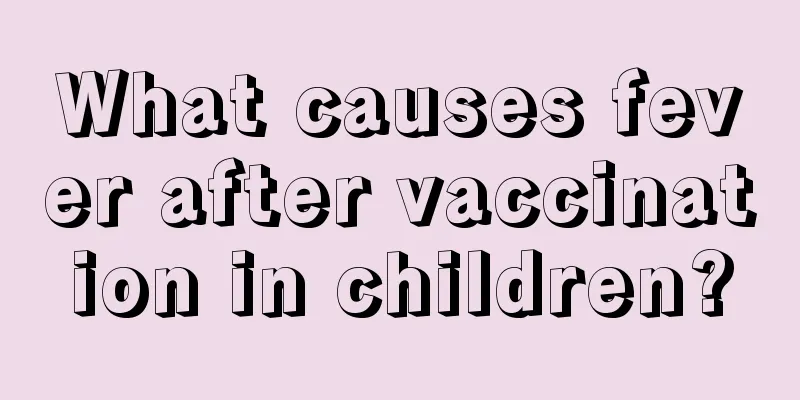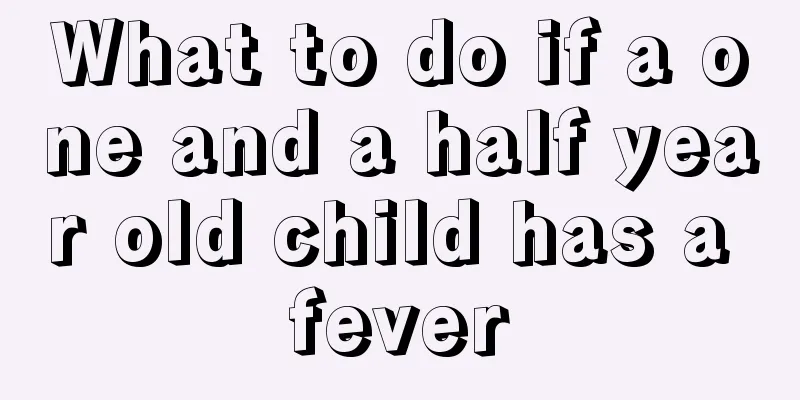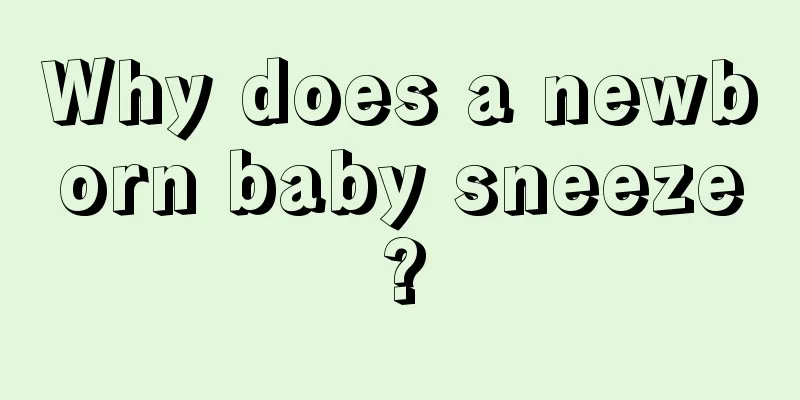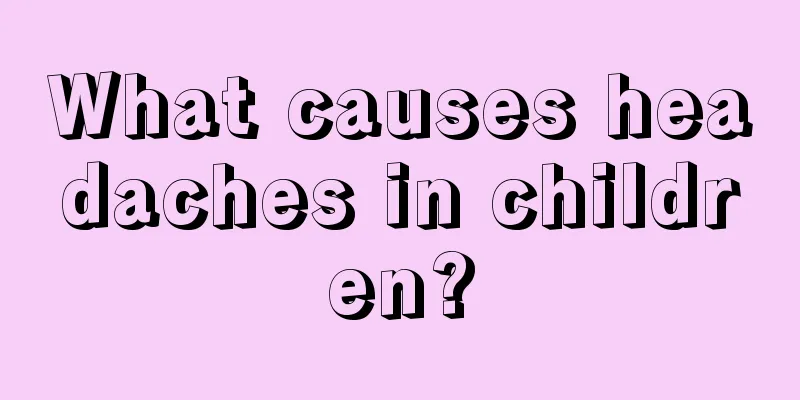What should I do if my child has a cough?
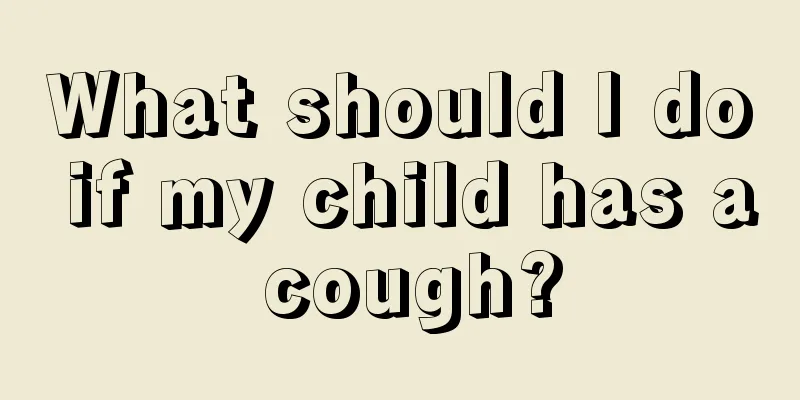
|
Children at home often cough because there are many reasons for coughing. It may be a cough caused by a cold, a cough caused by nasal inflammation, a cough caused by lung or digestive tract diseases, etc. In short, children's cough is more complicated. Fortunately, parents know their children best and usually know the reasons, and then they can take the following solutions. What should I do if my child has a cough? A baby's cough will seriously affect his sleep quality and his resistance will also decrease in the long run. In addition to drug treatment, you also need to strengthen your baby's care, pay attention to conditioning and taboos, let your baby get enough sleep, drink enough water, eat more vegetables and fruits, and the diet should be easy to digest and nutritious. The diet should be light, and babies should avoid eating irritating, greasy, spicy, and strong-tasting foods. Carbonated drinks should be avoided as much as possible, and cold drinks should be given to babies less often. 1. Drink water reasonably, drink small amounts frequently. No matter what kind of cough it is, you should actively let your baby drink water, and don't wait until he is thirsty to think about drinking water. If babies drink enough water, the sticky secretions can be diluted and coughed out more easily. At the same time, drinking water can improve blood circulation and quickly excrete waste or toxins produced by the body's metabolism, thereby reducing irritation to the respiratory tract. 2. Eat a light diet and avoid raw, cold and greasy food. The diet for babies with cough should be mainly light, with more fresh vegetables and a small amount of lean meat or poultry eggs. Avoid greasy and fishy foods. Fruits are indispensable, but not too much. Do not eat oranges if you have a wind-heat cough. Avoid sour foods as they have the effect of astringing phlegm and are not conducive to eliminating phlegm. 3. Keep the indoor air fresh. Open windows regularly to ventilate the home and keep the indoor temperature moderate, which helps keep the respiratory mucosa moist and the cilia on the mucosa surface moving, which helps expel phlegm. 4. Cold resistance training to enhance physical fitness. Starting from early autumn, wash your face with cold water, take a sponge bath, or let your skin come into close contact with fresh air regularly. There are different training methods, the key is perseverance. But you must be careful to strike a balance. When a cold wave comes, you should not blindly "freeze" yourself, otherwise you will catch a cold instead of exercising. 5. Focus on expectoration and use the medicine with caution. The respiratory system of children is not fully developed, and they cannot cough up phlegm as effectively as adults, so phlegm is easily retained. If cough suppressants are given as soon as a cough occurs, the cough will be stopped, but the suppressed cough will make it more difficult to expel phlegm, which will result in blockage of the respiratory tract, not only making the cough worse, but also making it easy to cause lung infection. Therefore, children's cough should be treated with expectorant in the early stages. |
<<: What should I do if my child coughs and has eye mucus?
>>: Why does my child’s legs tremble?
Recommend
How to deal with ringworm on children's face
In our lives, it is becoming more and more common...
Why is there blue around the baby's nose?
The birth of a baby is the happiest and most joyf...
How to relieve baby's anal redness
When the baby has frequent diarrhea, it is easy t...
How can children grow taller quickly?
How children grow taller is a concern for many pa...
What to do if your child's face is red, swollen or itchy
Redness, swelling and itching on a child's fa...
Can a three-year-old baby brush his teeth?
As babies grow up, parents need to teach them var...
What should I do if my child feels pain when urinating?
It is quite common for children to have pain when...
How to quickly reduce baby's fever without taking medicine or injections
There are actually many treatments for baby's...
What to do if baby has bubbles at the corners of mouth
Children are meant to be protected by their paren...
How to catch pinworms for children
Many children are prone to pinworm disease. This ...
What to do if your baby coughs in March
It is the common wish of every parent that every ...
Treatment of myasthenia gravis ocular type in children
Many children are born with severe physical probl...
Small testicles in boys
Small testicles in boys is a very common disease ...
What are the prevention methods for hernia in children?
Nowadays, children are the treasures of every hou...
Can children eat loofah?
In summer, loofah is one of the more popular food...


